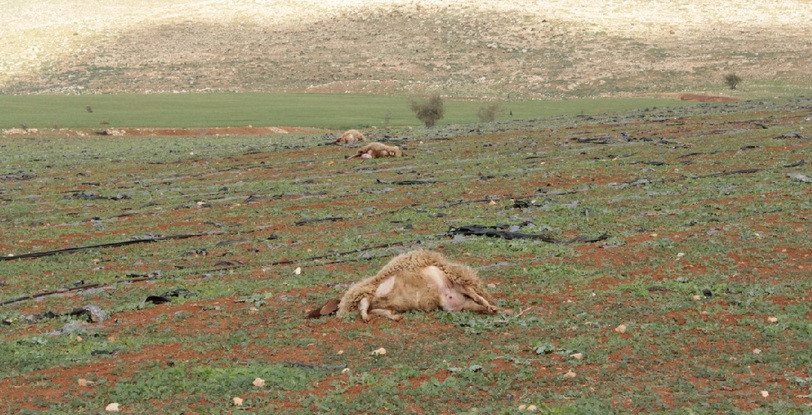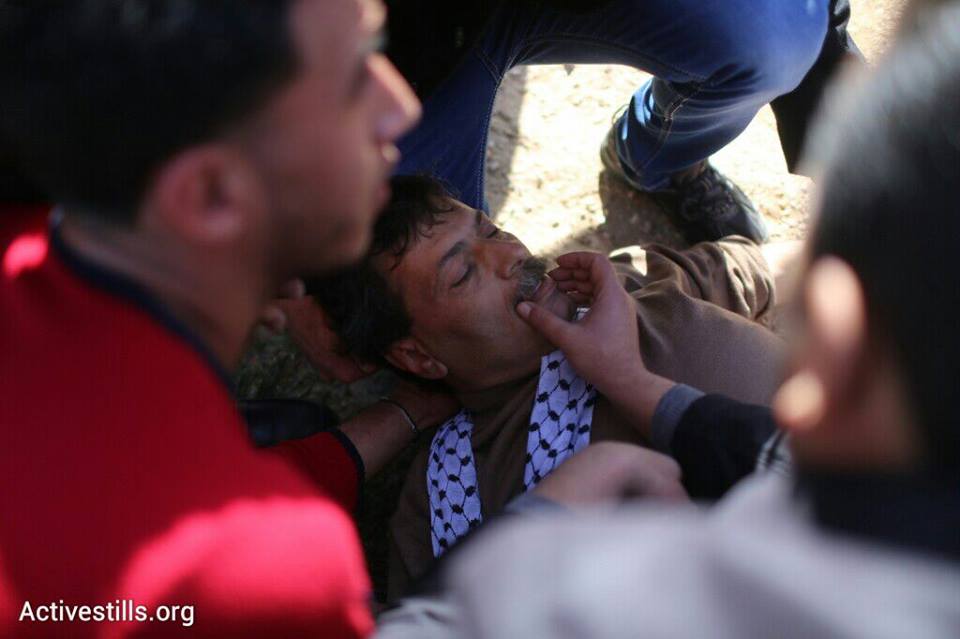Category: Nablus
-
Zionist settlers poison 13 sheep near Aqraba
6th January 2015 | International Solidarity Movement, Nablus team | Aqraba, Occupied Palestine Yesterday, ISM volunteers traveled to the area of Lifjim in East Aqraba, where shepherd Mohammed Ibrahim Abu Hamed grazes his sheep. Thirteen sheep lay dead there, foaming at the nose and mouth, one with green vomit visible – a clear case of…
-
Israeli soldier kills PA minister at non-violent protest
11th December 2014 | International Solidarity Movement | Turmusaya, Occupied Palestine Yesterday, an Israeli soldier killed Palestinian Authority (PA) Settlment minister, Ziad Abu Ein, at a non-violent demonstration in the village of Turmusaya. ISM spoke to Abdallah Abu-Rahme, coordinator of the Bil’in Popular Committee and present at the demonstration yesterday. “Yesterday was International Human Rights…
-
Palestinian family’s home invaded, two youths arrested by Israeli soldiers in Azzun village
11th December 2014 | International Solidarity Movement, Nablus team | Azzun, Occupied Palestine At 3 am, on the 8th of December in Azzun whilst the Radwan family slept, dozens of Israeli soldiers surrounded their house and broke in. They damaged the door as they entered, sweeping through the house and also breaking the doors of the kitchen cupboards. They ushered…



